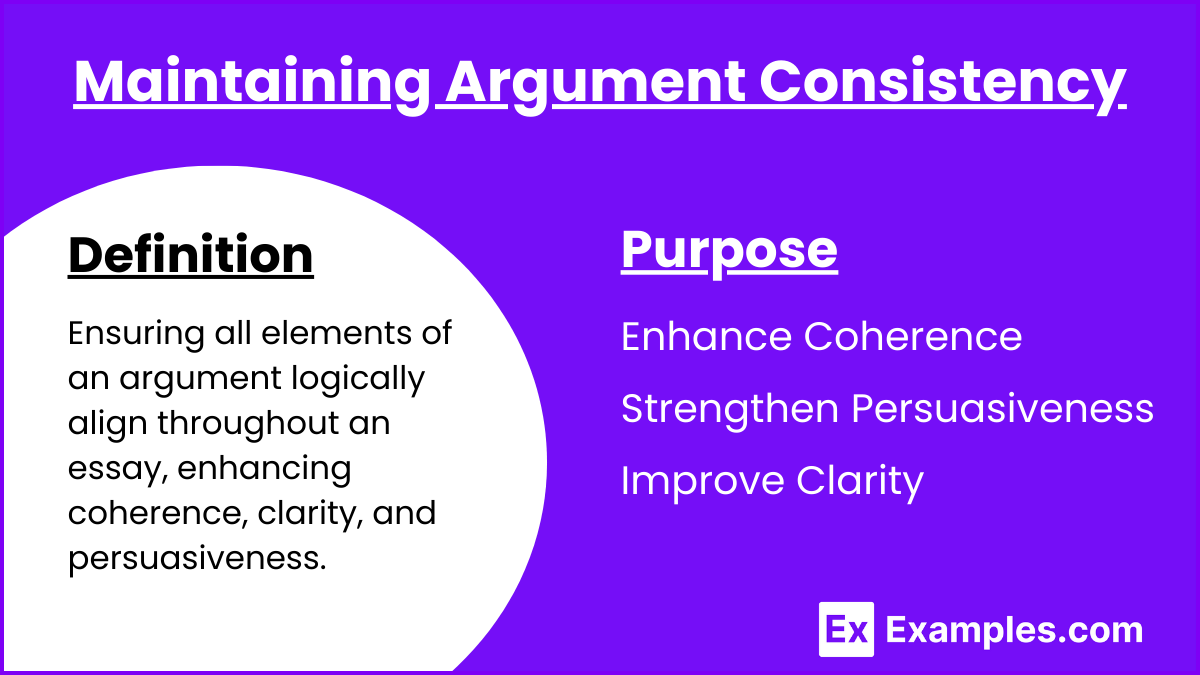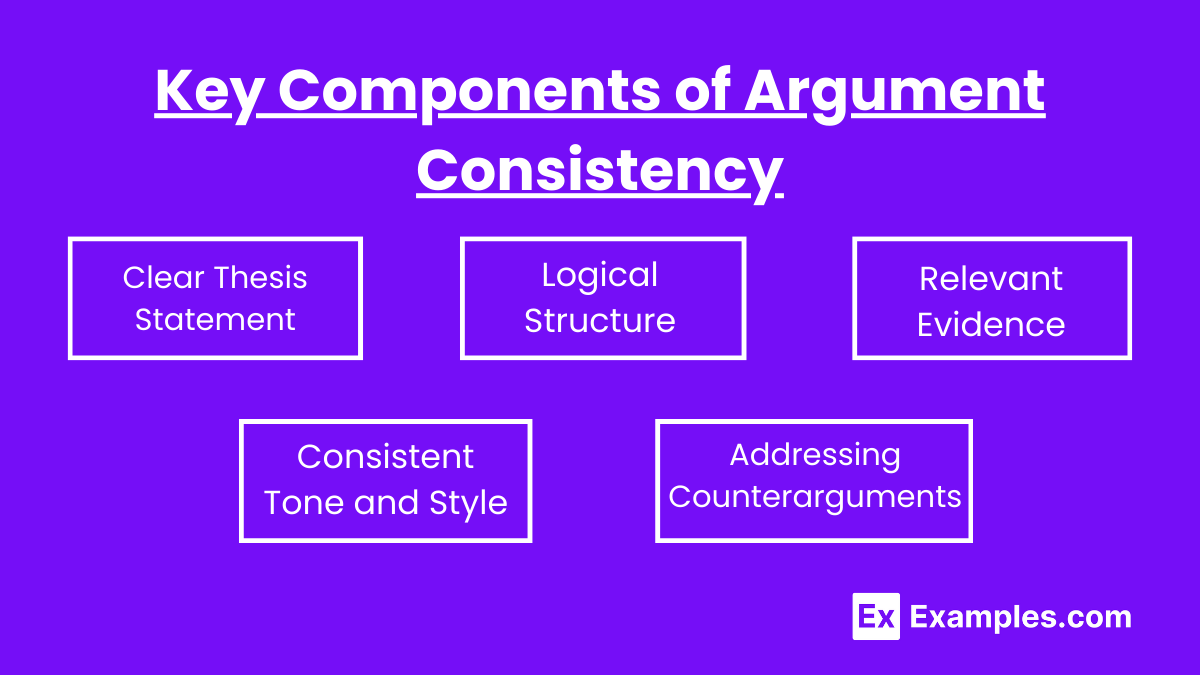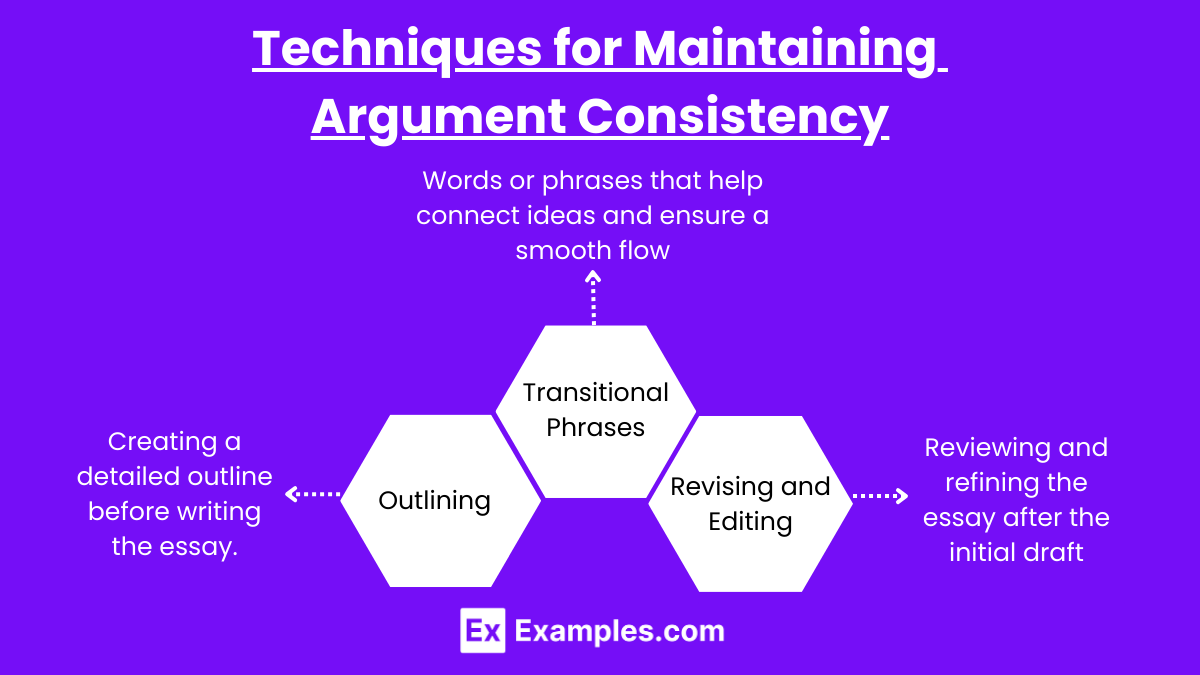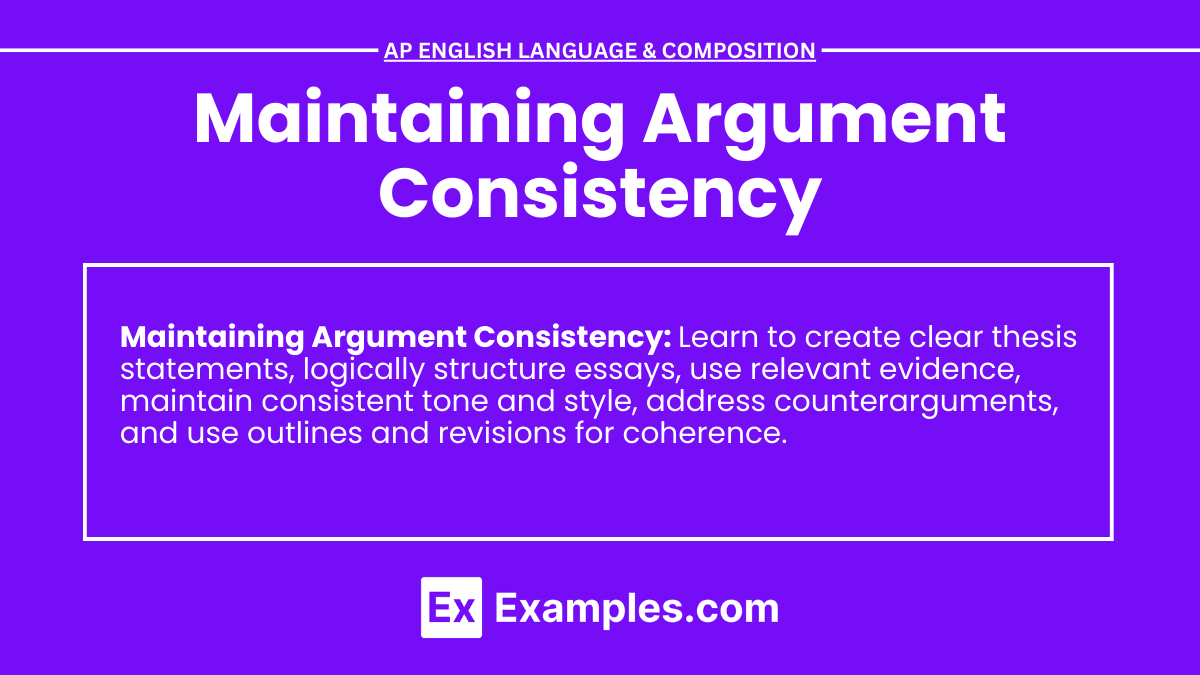In the AP English Language and Composition exam, maintaining argument consistency is essential for crafting a compelling rhetoric essay. Consistency in your argument ensures that your claims, evidence, and analysis align logically, enhancing the clarity and persuasiveness of your writing. Within the rhetoric context, this involves demonstrating critical thinking and a deep understanding of rhetoric to construct a coherent and convincing argument. By maintaining consistency, you strengthen your essay's overall impact, making it easier for readers to follow and be persuaded by your points.
Free AP English Language and Composition Practice Test
Learning Objectives
By studying the topic of maintaining argument consistency, students will achieve several key learning objectives. They will learn to craft cohesive argumentative speeches and argumentative writing by ensuring their claims and evidence align logically. Students will develop skills to create clear and coherent explanatory essays and expository essays with well-structured rhetorical sentences. Additionally, they will master the art of refining their final thesis statement to ensure it consistently guides and supports the entire essay, enhancing the overall clarity and persuasiveness of their writing.
Understanding Argument Consistency

Definition
Argument consistency refers to the logical alignment and coherence of all elements of an argument throughout an essay. This includes maintaining a clear and focused thesis, supporting claims with relevant evidence, and ensuring all parts of the argument interconnect logically.
Purpose
Enhance Coherence: Ensures the essay flows logically from one point to the next.
Strengthen Persuasiveness: Builds a strong, unified argument that is more convincing to the reader.
Improve Clarity: Helps the reader easily follow and understand the argument.
Key Components of Argument Consistency

Clear Thesis Statement
Definition: A concise statement that presents the main argument or claim of the essay.
Purpose: Provides a clear direction and focus for the essay.
Example: "Implementing renewable energy sources is essential for combating climate change and reducing environmental pollution."
Logical Structure
Definition: Organizing the essay in a way that each part logically follows from the previous one.
Purpose: Ensures that the essay is easy to follow and understand.
Example: Using a point-by-point structure to compare the benefits of solar and wind energy.
Relevant Evidence
Definition: Facts, quotes, examples, or data that support the claims made in the essay.
Purpose: Strengthens the argument by providing concrete support for the claims.
Example: Citing studies that show the effectiveness of renewable energy in reducing carbon emissions.
Consistent Tone and Style
Definition: Maintaining a uniform tone and writing style throughout the essay.
Purpose: Enhances the readability and professionalism of the essay.
Example: Using formal language consistently and avoiding slang or overly casual expressions.
Addressing Counterarguments
Definition: Recognizing and refuting opposing viewpoints.
Purpose: Demonstrates thorough understanding of the topic and strengthens the main argument.
Example: Addressing the argument that renewable energy is too expensive by providing evidence of long-term cost savings.
Techniques for Maintaining Argument Consistency

Outlining
Definition: Creating a detailed outline before writing the essay.
Purpose: Helps organize thoughts and ensure all parts of the essay align with the thesis.
Example: An outline that includes the thesis statement, main points, evidence, and counterarguments.
Transitional Phrases
Definition: Words or phrases that help connect ideas and ensure a smooth flow.
Purpose: Maintains logical progression and coherence between paragraphs.
Example: Using phrases like "furthermore," "in addition," and "on the other hand."
Revising and Editing
Definition: Reviewing and refining the essay after the initial draft.
Purpose: Ensures clarity, coherence, and alignment with the thesis.
Example: Checking that each paragraph supports the thesis and that there are no contradictions.
Examples
Example 1: Environmental Policy Essay
Thesis Statement: "Stricter environmental regulations are necessary to protect natural habitats and ensure sustainable development."
Consistent Argument: Discuss the impact of pollution on wildlife, provide evidence of successful regulations in other countries, and address counterarguments about economic impact.
Example 2: Technology in Education Essay
Thesis Statement: "Integrating technology into classrooms enhances student learning and engagement."
Consistent Argument: Present studies on the benefits of educational technology, provide examples of successful tech integration, and counter concerns about screen time.


